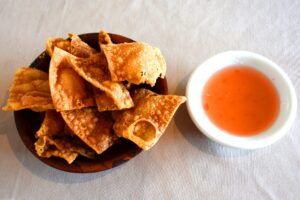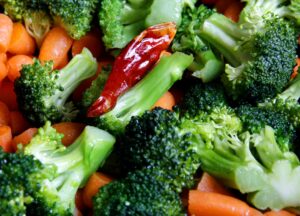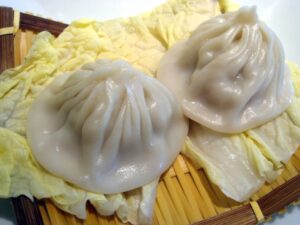 One thing that the development of my propylene glycol allergy has done is to make me a human detector of certain chemicals in food. I haven’t figured out all the quirks of my condition yet, but a closing throat is a pretty clear symptom. I have read recently about the conditions of Chinese-grown organic foods as compared to organic foods from other regions and the recent pasta exposure brought that home to me. The pasta was made in Canada from Canadian and foreign ingredients. Not all organic certifications worldwide are equal.
One thing that the development of my propylene glycol allergy has done is to make me a human detector of certain chemicals in food. I haven’t figured out all the quirks of my condition yet, but a closing throat is a pretty clear symptom. I have read recently about the conditions of Chinese-grown organic foods as compared to organic foods from other regions and the recent pasta exposure brought that home to me. The pasta was made in Canada from Canadian and foreign ingredients. Not all organic certifications worldwide are equal.
Growing (and working, and manufacturing) conditions in China are very different than those in North America and Europe. While Europe leads the world on safer foods and products, Asia is the place where businesses move their production and manufacturing to take advantage of cheaper labour and more relaxed environmental laws. China is now making small steps to improve their environmental impact, but the effect of decades of imprudent practices combined with modest changes now can’t fix anything overnight, especially the soil, water, and air. Food grown in less contaminated but still relatively chemical-rich soil, and watered with polluted water, even if no pesticides or herbicides are directly added, is not chemical-free food. USDA organic requirements only cover the substances added to the food or applied to fields, not water, air, or soil quality beyond a 3-year soil decontamination period.
 The country’s corruption can also play a part, as producers pay the certifiers to certify their food organic. Both China’s food production and organic certifications are based on business and the desire to fill a need and make a profit, whereas in other areas of the world the organic market originally came from a desire to increase health and protect the environment, and grew towards a more profit-bearing model, with very little desire to preserve or work with the environment or to promote fair trade. Differing goals can lead to different results.
The country’s corruption can also play a part, as producers pay the certifiers to certify their food organic. Both China’s food production and organic certifications are based on business and the desire to fill a need and make a profit, whereas in other areas of the world the organic market originally came from a desire to increase health and protect the environment, and grew towards a more profit-bearing model, with very little desire to preserve or work with the environment or to promote fair trade. Differing goals can lead to different results.
It can be difficult to quantify these concepts. One review found that “hazard-free food,” which allows the use of chemicals, is much more prevalent and supported by the Chinese government, and comprised the majority of commercial production. True organic produce tended to be produced by small producers and farmers’ co-ops, which are much less supported within the regulation, business, and food supply framework in China. Consumer support is still not strong enough to provide a solid production network. Certification for organic foods in China (as elsewhere) is costly and complicated, and this cost also drives small producers, who often have more sustainable practices, out of the market.
 There IS a growing demand for organic foods in China. With growing incomes, healthier living is seen as somewhat of a status symbol, with products marketed as “natural” or “green” selling better than before, and wealthy individuals purchasing land for private production farms to serve their food needs. Many Chinese people do not trust the labeling and certification of local products due to fraud and are instead buying these products from overseas sources.
There IS a growing demand for organic foods in China. With growing incomes, healthier living is seen as somewhat of a status symbol, with products marketed as “natural” or “green” selling better than before, and wealthy individuals purchasing land for private production farms to serve their food needs. Many Chinese people do not trust the labeling and certification of local products due to fraud and are instead buying these products from overseas sources.
I am concerned for the environment and fair treatment of workers, but my interest is also personal. The chemicals present in foods can and do cause me allergic reactions. If there is any question about the chemical-free nature of organic foods from China, I will look elsewhere for my food. I guess I’m like Chinese people that way. I have no desire to be harmed by the same mistake twice.
